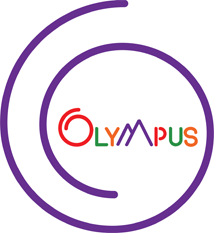Monday, October 12, 2015
Education tech firm Acrobatiq does software to supplement college learning
When the Bill & Melinda Gates Foundation invested in Pittsburgh startup Acrobatiq Inc., it wasn't expecting to earn a tidy return on its money.The $41 billion nonprofit that focuses on health, development and education around the world thinks the South Side-based education technology company can help it fulfill a core mission: helping more poor, disadvantaged, immigrant and minority students graduate from college with market-ready skills.
Acrobatiq, which spun out of Carnegie Mellon University, makes learning software that replaces college textbooks, tracks student progress and adapts to their learning styles.
“It's a better technology that helps improve student outcomes,” said Jason Palmer, deputy director of postsecondary success at the Seattle-based foundation, one of four investors that participated in a $9.75 million fundraising round for Acrobatiq that closed in July. The foundation's investment amount was not disclosed.
The company counts 45 American universities as customers. It ended its most recent fiscal year on June 30 with revenue between $2 million and $3 million. Although CEO Eric Frank declined to be more specific about the privately held company's financials, he said revenue is on track to be three times higher by the end of this fiscal year.
“What we're really trying to do is use data to help teachers do a better job, help the students get better and adapt the course to better teach students,” Frank said.
Acrobatiq accomplishes this with technology developed through Carnegie Mellon's Open Learning Initiative, an effort started at the university in 2002 to generate free, high-quality online courses that were designed with the guidance of the latest learning science.
Acrobatiq's online courses and platform, which can be customized to a professor's specifications, include hundreds of opportunities to practice skills and timely feedback. The software provides activities that assess a student's ability to apply their knowledge in real-world scenarios.
So far, the courses primarily have targeted large introductory-level college classes, such as anatomy, biology, psychology, statistics and world history — classes where students typically don't get much one-on-one help from the professor and can easily fall behind, Frank said.
That's how Western Governors University, a Salt Lake City-based, nonprofit, online-only school, uses Acrobatiq, said David Leasure, provost and chief academic officer.
Western Governors has been using Acrobatiq for more than a year and has an average of 1,300 students a month taking 10 of the company's courses. Leasure said the university is expanding Acrobatiq to its business school and working with the company to develop master's degree-level courses.
“It truly helps students learn and remember the concepts from the course,” Leasure said. “And it supports the institution with faculty resources so that they're being deployed in the most learning-effective manner.”
Traditional universities use Acrobatiq as well. Lawrence Rudiger, a senior lecturer in psychological sciences at University of Vermont, uses the software instead of textbooks for his introductory psychology classes, which this semester have about 300 students each.
“Conventional textbooks aren't learning tools — they're a container for knowledge,” he said. “Acrobatiq is a profoundly different operation. It's an evidence-driven learning platform, based on very solid learning science.”
Rudiger requires students to complete Acrobatiq lessons online and uses data from how students performed to guide his lectures.
“That's what makes it really work,” he said. “Not only is this a way to help your learning, but it helps us make smart choices.”
Frank said he hopes to expand Acrobatiq's presence at traditional universities as they continue “dipping their toes” into the waters of online education. He argues that American colleges are struggling with growing costs and Acrobatiq can help them cost-effectively deliver high-quality education to large numbers of students.
The company hopes to take its products overseas and is gearing up for growth.
Acrobatiq has been sharing office space with another startup company in the South Side but is looking for its own. It has 16 employees in Pittsburgh, and 31 total. Frank said he expects to hire about 40 workers during the next two years, with 25 of them based in Pittsburgh.
“We have an incredible opportunity to drive down the cost of education and make it more accessible,” he said. Read More»
By: Alex Nixon
